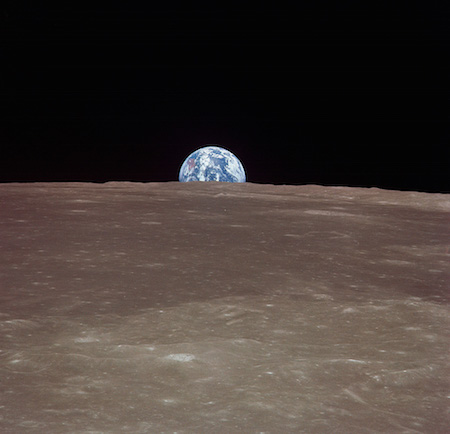The Rarity of Sociological Mindfulness
by
Charles Lamson
If sociological mindfulness were common, you would simply take it for granted that we all need to be aware of, and to think carefully about how the social world works. You would probably think it strange for anyone to make a big deal about doing so, but it seems that sociological mindfulness is actually quite rare in our society.
 |
One reason might be that sociological mindfulness does not seem like much fun. Who wants more rules for how to think? As soon as there are rules, then we must worry about getting it right or wrong. So we might feel like saying, "Enough with fancy intellectual schemes! I'm doing just fine with common sense, thank you. Besides, I would prefer to live life rather than analyze it to death." This sentiment is not unreasonable in a society where we are constantly being offered ideas of dubious merit.
Another reason that sociological mindfulness is rare might be a belief that it will not matter. Why bother thinking analytically about social life if doing so will not make a difference? Some smart and caring people withdraw from the world because they do not believe they can do anything to change it. They feel powerless, as do many people in our society. The writer of this book thinks this is what really impedes sociological mindfulness. We tend to be mindful of things that we feel responsible for, and have some control over. But if we feel powerless to change the situation, we probably will not try to analyze it deeply. We might feel lucky jut to avoid trouble.

American individualism also inhibits sociological mindfulness. As Americans, we learn that it is good to be self-reliant, to achieve on our own, and to look out for ourselves. Under some conditions, these are helpful ideas, but they can also blind us to our interdependence with others, and keep us from seeing how our ties with others lead us to think, feel, and behave in certain ways. Ideas that lead us to think of ourselves solely as competing individuals, free to do anything we want at any time, can keep us from being mindful of the social world in which we are immersed.
It is also possible that a desire for money and status may so preoccupy us that we fail to think much about how society works or how other people experience it. Or we might fear the loss of security that can come from questioning the beliefs we grew up with. Or we might be so angry at those who abuse us, that we lose all sympathy for others who are worse off. Or perhaps we prefer not to reflect on how we participate in oppressing others, because it would make us feel guilty or sad.
People resist being sociologically mindful for many reasons, but not because they are naturally selfish, competitive, or cowardly. If such feelings arise and inhibit sociological mindfulness, it is because of how people have grown up. In a less competitive society where good jobs were available for everyone, people could feel more secure and would probably be willing to spend more time reflecting on how society works. When it seems like life is a race, few people may want to stop to analyze what all the racing is about, or where it is leading, lest they fall behind.
Being sociologically mindful goes against the grain in Western society. It may also go against many of the impulses that have been instilled in us as Americans. How can these resistances be overcome? First of all, with ideas, since people must think it is worthwhile to practice sociological mindfulness. In this book Schwalbe hopes that the ideas he has offered so far (in the previous few articles) have persuaded you, at least partly, if you needed persuasion.
Here is one more idea that might nudge you toward more mindfulness. Even if you are young now, you will probably die in 40 to 60 years; if you are older, you have fewer years remaining. The time will pass quickly. How do you want to use it? You could try to acquire as much wealth and fame as possible. That seems to be the main ambition for many people in our culture; there are, however, other goals for a human life. You could try to enrich the lives of others by teaching, creating art, restoring a piece of the earth, promoting health, resisting violence, or organizing for change. What kind of mark do you want to leave on the earth for having lived? If you would like to leave the earth a better place than you found it, sociological mindfulness will help you see what needs to be done.
To be continued...
*SOURCE: THE SOCIOLOGICALLY EXAMINED LIFE, 3RD EDITION, BY MICHAEL SCHWALBE, 2001, PGS. 6-7*
END
|

No comments:
Post a Comment